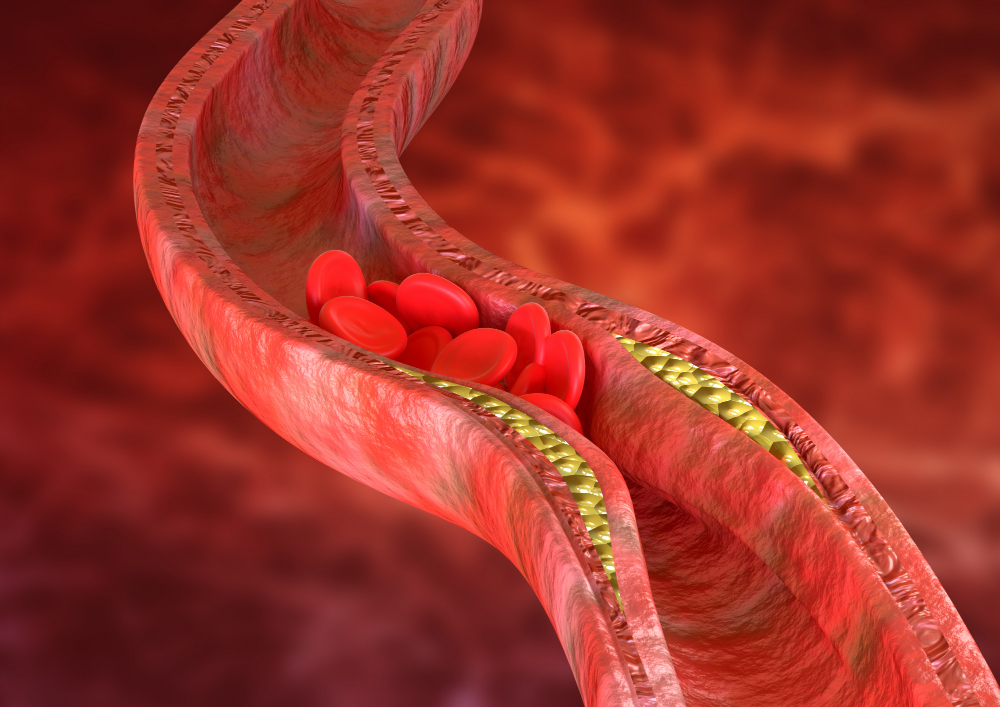Heart & Cardiovascular
Cholesterol And Heart Risk
By H.S. (staff writer) , published on October 03, 2021

Medicine Telehealth Health
A large proportion of the world's population develops cardiovascular diseases, mainly stroke, and heart attack, at an early age because of high cholesterol levels. The World Health Organization (WHO) has explained that high cholesterol levels (hyperlipidemia) are the leading cause of cardiovascular diseases. Other causes of heart diseases include genetics, hypertension, smoking, and diabetes.
What Is Cholesterol?
Your blood contains many components, one of which is “lipids.” Triglycerides and cholesterol are the two main categories of lipids. Cholesterol is a waxy or fat-like compound that is highly needed by your cells to maintain their structure and function. Your liver produces cholesterol, but there are many foods that contain cholesterol, such as eggs, milk, and meat.
There are two types of cholesterol that travel in your bloodstream:
-
Good Cholesterol: It is called high-density lipoproteins (HDL). As the name suggests, HDL is considered good because it takes up cholesterol and transports it back to the liver for throwing away.
-
Bad Cholesterol: A very high amount of low-density lipoproteins is present in your bloodstream. It is called “bad” because of its high amounts. It has the function of transporting cholesterol to various parts of your body. Sometimes, it can also clog the arteries [1].
How Cholesterol Is Associated With Heart Risk?
As “excess of everything is bad,” cholesterol present in the blood in high amounts is not suitable for your health. Unhealthy lifestyle and poor diet is the main reason for high cholesterol. Genetics also plays an important role in high cholesterol levels.
High LDL levels and low HDL levels are a “red flag” because they are highly associated with greater risks of heart diseases.
The optimal value for LDL cholesterol is <90mg/dl. If the optimal level increases, your life may be in danger [2].
Hyperlipidemia And Atherosclerosis:
When an increased quantity of lipids and cholesterol circulating in the bloodstream, the condition is called hyperlipidemia, which is mainly due to genetic factors. In hyperlipidemia, cholesterol tries to enter the arteries of the heart and starts clogging the arteries, thus restricting the flow of blood. This may lead to a condition called atherosclerosis [3].
When the flow of blood is reduced due to the hardening of arteries, various conditions might also occur, such as heart attack (complete blockage of arteries) and angina (partial blockage).
The arteries that lead to the brain can also be narrowed or sometimes blocked due to hyperlipidemia. This could increase the chances of stroke [4].
Common symptoms of hyperlipidemia include:
-
Chest pain
-
Xanthomas (deposits of cholesterol)
-
Deposits of cholesterol under the eye
-
Bumps on the skin
How Can High Cholesterol Levels Be Prevented?
High cholesterol levels can be managed by modifying the following lifestyle choices:
-
Maintain A Heart-Healthy Diet: The American Heart Association (AHA) explains that all cholesterol problems begin with trans and saturated fats. If you reduce the amounts of these fats from your diet, you can lower your cholesterol.
-
Give Up Smoking: If a person has high LDL levels and smokes as well, the chances of developing coronary heart disease increase. Passive smoking also increases the risks of cardiovascular diseases.
-
Increase Physical Activity: Physical activity is important for maintaining your heart health. Aerobic exercise is best suited for improving cholesterol levels. Cycling, walking, and swimming is better options.
References:
-
Barter P, Gotto AM, LaRosa JC, Maroni J, Szarek M, Grundy SM, et al. HDL Cholesterol, Very Low Levels of LDL Cholesterol, and Cardiovascular Events. N Engl J Med 2007;357:1301–10. https://doi.org/10.1056/NEJMoa064278.
-
Fernandez ML, Webb D. The LDL to HDL Cholesterol Ratio as a Valuable Tool to Evaluate Coronary Heart Disease Risk. J Am Coll Nutr 2008;27:1–5. https://doi.org/10.1080/07315724.2008.10719668.
-
McNamara DJ. Dietary cholesterol and atherosclerosis. Biochim Biophys Acta - Mol Cell Biol Lipids 2000;1529:310–20. https://doi.org/https://doi.org/10.1016/S1388-1981(00)00156-6.
-
Collaboration APCS. Cholesterol, coronary heart disease, and stroke in the Asia Pacific region. Int J Epidemiol 2003;32:563–72. https://doi.org/https://doi.org/10.1093/ije/dyg106.
Find articles related to: Medicine Telehealth Health
More articles about Heart & Cardiovascular
Back to the Health Tips Index




